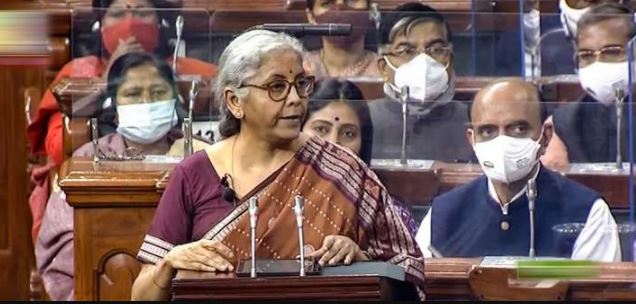The digital rupee or central bank digital currency will be introduced using blockchain, said finance minister while presenting the Budget.
Finance minister Nirmala Sitharaman announced the introduction of digital rupee by the Reserve Bank of India in Union Budget 2022. The digital rupee or central bank digital currency will be introduced using blockchain, said finance minister while presenting the Budget.
Earlier, Reserve Bank of India (RBI) in October, 2021 received the nod for an amendment to the Reserve Bank of India Act, 1934 to enhance the scope of the definition of ‘bank note’ to include currency in digital form. The Centre earlier said that the CBDC has the potential to provide significant benefits, such as reduced dependency on cash
To this, minister of state in the finance ministry, Pankaj Chaudhary, replied in a written note. “Central Bank Digital Currency (CBDC) is introduced by a Central Bank. Government has received a proposal from
Reserve Bank of India (RBI) in October, 2021 for amendment to the Reserve Bank of India Act, 1934 to enhance the scope of the definition of ‘bank note’ to include currency in digital form. RBI has been examining use cases and working out a phased implementation strategy for introduction of CBDC with little or no disruption,” he said.
“Introduction of CBDC has the potential to provide significant benefits, such as reduced dependency on cash, higher seigniorage due to lower transaction costs, reduced settlement risk.
Introduction of CBDC would also possibly lead to a more robust, efficient, trusted, regulated and legal tender-based payments option. There are also associated risks which need to be carefully evaluated against the potential benefits,” Chaudhary said in the reply.
“Unregulated cryptocurrencies can destabilise the macro-economy and create big speculative bubbles. To that extent, the RBI is right,” ET quoted the source as saying in its report.
The government’s reply comes amid reports that the RBI’s Central Bank Digital Currency is likely to be included in the government’s upcoming Bill on regulating cryptocurrencies during the winter session of the Parliament.
In a report by the Economic Times, quoting government sources, it was said that the Bill was a response to the RBI’s concerns over macro-economic stability. The official said that the “government’s response is not to ban cryptocurrencies but rather to provide cryptocurrency via the RBI.”
The Cryptocurrency and Regulation of Official Digital Currency Bill, 2021, notified in a Lok Sabha bulletin days ago, seeks to prohibit all private cryptocurrency. On top of that, it also seeks to introduce a digital currency of its own, backed by the Reserve Bank of India.
It also proposed “to create a facilitative framework for creation of the official digital currency to be issued by the Reserve Bank of India”. Further, it sought to “allow for certain exceptions to promote the underlying technology of cryptocurrency and its uses…,” the bulletin added.
Earlier in August this year, RBI governor Shaktikanta Das told CNBC that trials for the introduction of the official digital currency would likely begin in December. “I think by the end of the year, we should be able to — we would be in a position, perhaps — to start our first trials,” he told the news portal during an interview.






